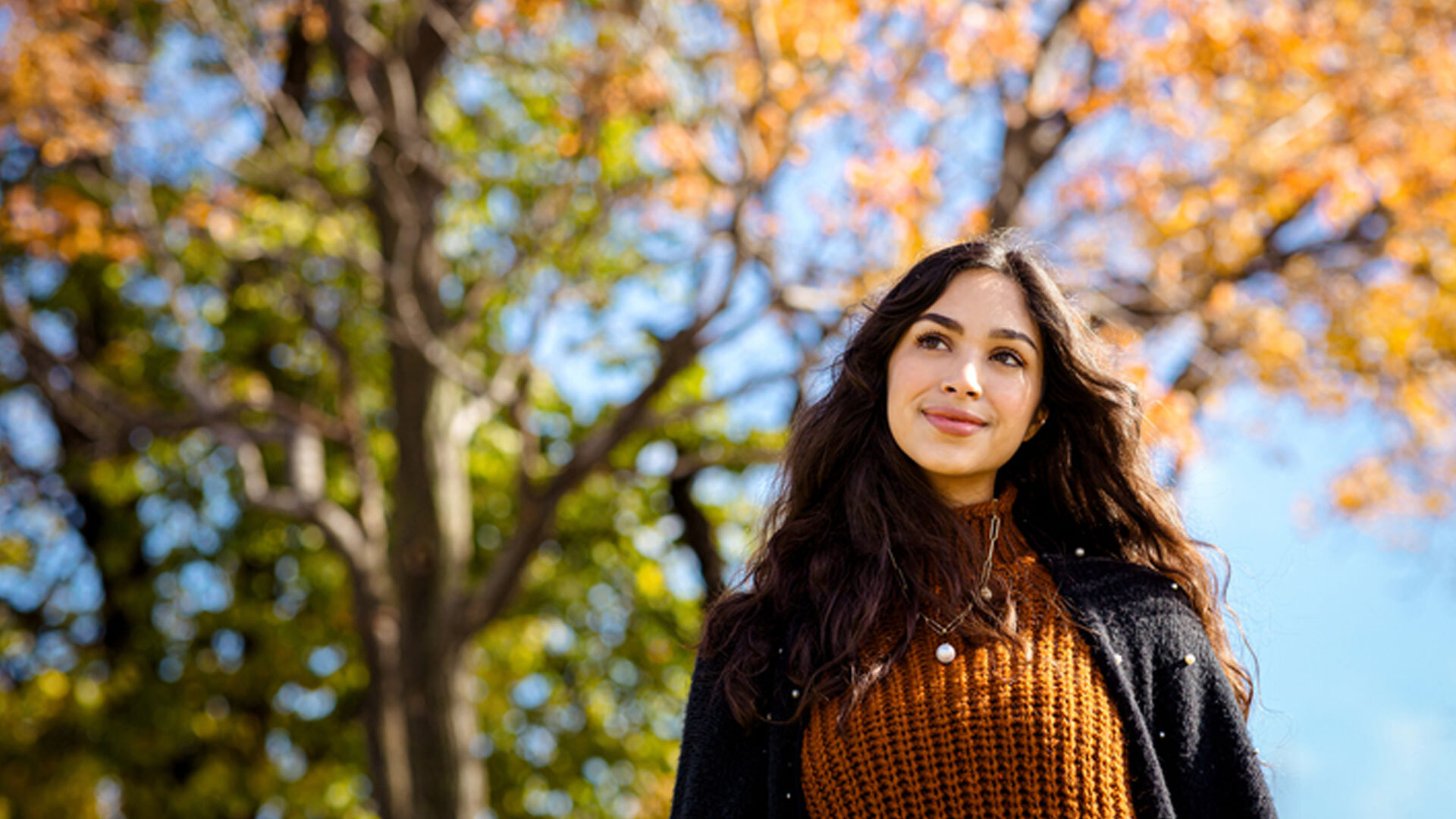When does autumn start?
As the long-awaited Indian summer of 2023 comes to a close, you may be wondering when does autumn start?


Parenting advice, hot topics, best buys and family finance tips delivered straight to your inbox.
You are now subscribed
Your newsletter sign-up was successful
With the temperatures slowly beginning to get back to normal this September, you may be wondering when does autumn actually start and what date do the clocks go back? Some people are curious to know what caused the September heatwave.
When does autumn start? First day of autumn in 2023
Although you wouldn’t think it based on the unseasonably warm temperatures for this time of year, autumn has in fact begun, according to the meteorological calendar that stated the first day of autumn was 1 September.
The Met Office, on the other hand, says that autumn officially starts on 23 September (but this refers to ‘astronomical autumn’).
So why are the start dates for autumn different? Seasons are defined in two ways: astronomical seasons, which are based on the earth’s position as it rotates around the sun, and meteorological seasons, which are based on annual temperature cycles.
Both divide the year into spring, summer, autumn, and winter yet with slightly different start and end dates for each.
Astronomical autumn and meteorological autumn: what’s the difference?
The astronomical autumn changes every year because it starts on the date of autumn equinox, also known as autumn solstice or the September equinox.
Meanwhile, meteorological seasons are all three months long and determined by splitting the year into quarters: spring begins 1 March, summer is 1 June, autumn is 1 September and winter starts on 1 December.
Parenting advice, hot topics, best buys and family finance tips delivered straight to your inbox.
Meteorological seasons are all three months long and are determined by splitting the year into four, making it easier for meteorological observation and comparing seasonal statistics. The meteorological seasons define spring as beginning 1 March, summer beginning 1 June, autumn beginning 1 September and winter beginning 1 December.
What happened in the summer of 2023?
July and August didn’t exactly give us hope for a ‘good’ summer this year until a late heatwave swept the country with temperatures soaring to 37 degrees in September.
In fact, data by the Copernicus Climate Change Service found that summer 2023 was the hottest on record globally with countries such as Spain, Italy and France experiencing extreme temperatures causing travel chaos across the world.
So why did the UK experience such high temperatures in September? The heatwave was said to be driven by tropical storms pushing a high pressure system to the UK with strong winds that headed in a northern direction and bending into what is known as an omega blocking pattern, according to The Met Office.
The area of high pressure was stuck between two areas of low pressure and caused a polarisation in weather fronts.
Countries such as Spain and Greece experienced torrential rain, whereas the UK and central Europe had scorching temperatures for a number of days.
When is autumn equinox 2023?
In 2023, the autumnal equinox will be on September 23 at 6:50am GMT (7:50am BST), marking the first official day of autumn. It can occur any time between 21 and 24 September and marks the transition between the seasons.
The equinox happens twice a year (spring and autumn) and is the time when the sun crosses the equator, when day and night become the same length. After this, nights become longer and darker, while after the spring equinox, the days become longer and lighter.
The autumn equinox also marks the start of the northern hemisphere tilting away from the sun, which means less direct sunlight and cooler temperatures. So for countries in the southern hemisphere like Argentina and Brazil, it marks the arrival of spring.
The #equilux is the moment when day and night are equal length and occurs a few days before the #equinox pic.twitter.com/oFCDwSlNYdMarch 19, 2016
When do the clocks go back 2023?
Here in the UK, the clocks always change on the last Sunday in October, which falls on 29 October this year. The clocks will go back by one hour at 2am on this date, giving us an extra hour in bed. To remember whether the clocks go back or forward, you could think of it as the clocks falling back as fall is the word for autumn in America.
When the clocks go back, the UK is on Greenwich Mean Time (GMT). We switch to GMT to make better use of the daylight (hence why it is also referred to as Daylight Saving Time), and this system is used by most countries in Europe.

How long does autumn last?
Autumn always lasts three months in both the astronomical and the meteorological calendar, though the exact end date will differ.
During this time, the leaves on the trees will turn mustard yellow and pumpkin orange, eventually shedding their leaves to prepare for the shorter days in winter. Some plants will stop making food and some small animals, such as hedgehogs, dormice and bats, will begin to hibernate.
When does autumn end in 2023?
According to the meteorological calendar, autumn will end on 30 November 2023, while the astronomical calendar marks the last day of autumn as 22 December 2023.
The winter solstice marks the end of autumn and the onset of winter in the astronomical calendar – it’s also the shortest day of the year, with roughly seven hours and 49 minutes of daylight.
What is coming on TV in autumn 2023?
There are some benefits to the nights drawing in – namely, epic TV series to get stuck into. Nation favourites like Strictly Come Dancing and The Great British Bake-Off are all set to make a return to our screens, while some shows are having a revival in time for the autumn months such as Celebrity Race Across the World and we can expect new programmes such as My Mum, Your Dad.

Ellie is GoodtoKnow’s Family News Editor and covers all the latest trends in the parenting world - from relationship advice and baby names to wellbeing and self-care ideas for busy mums. Ellie is also an NCTJ-qualified journalist and has a distinction in MA Magazine Journalism from Nottingham Trent University and a first-class degree in Journalism from Cardiff University. Previously, Ellie has worked with BBC Good Food, The Big Issue, and the Nottingham Post, as well as freelancing as an arts and entertainment writer alongside her studies. When she’s not got her nose in a book, you’ll probably find Ellie jogging around her local park, indulging in an insta-worthy restaurant, or watching Netflix’s newest true crime documentary.
- Maddy BiddulphFreelance parenting writer
- Daniella GrayFamily News & Wellbeing Writer